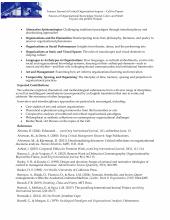Barbara Czarniawska
2023 20 ( 1 ) DOI: 10.7206/tamara.1532-5555.15
|
Graham Symon
|
Michaela Driver
|
Mohammad Manki
Wyświetleń3107 Pobrań1195
|
Richard Badham; Karin Garrety
|
David A. Buchanan
|
Steven D. Brown
Wyświetleń2895 Pobrań1134
|
Helene Fine
|
Lekkie Hopkins
|
Charalambos Tsekeris; Nicos Katrivesis
|
Steffen Roth
|
Jasmin Siri; Victoria von Groddeck
|
Justyna Olędzka
|





